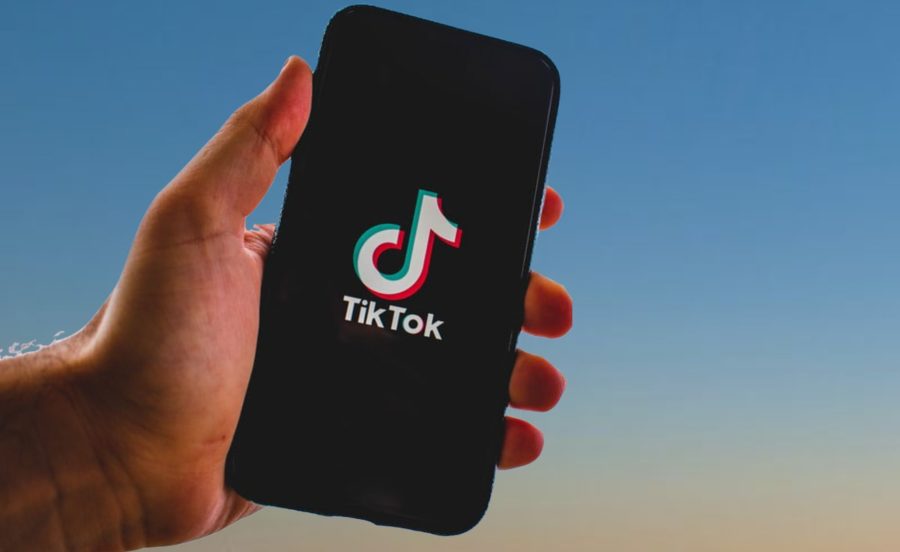
President Donald Trump on Thursday issued an executive order that just might save America’s democracy.
Using emergency powers, he prohibited, after the expiration of a 45-day period, Americans from any transaction with ByteDance Ltd., a privately owned Chinese company, or any of its subsidiaries. Prohibited transactions, the order states, will be those “identified” by the Secretary of Commerce.
The order effectively bans ByteDance’s TikTok, a video-sharing mobile application, from the United States at the end of 45 days.
TikTok has been accused of surveilling users, censoring content, and mishandling information of minors. There are also concerns the app has vulnerabilities, allowing the surreptitious downloading of malicious software on devices. The most important allegation involves manipulation of users.
The app, which the New York Times called “China’s first truly global internet success story,” is wildly popular, especially among teenagers and tweens. Available in 39 languages in more than 150 markets, last year TikTok was the world’s second-most downloaded non-gaming app.
There are, according to Trump’s executive order, more than a billion downloads of TikTok worldwide and more than 175 million in the United States alone. There are, analysts estimate, in excess of 800 million active monthly users.
TikTok is addictive, but that should come as no surprise. It was designed to be such, powered by perhaps the world’s most sophisticated artificial intelligence for this purpose. TikTok delivers, perhaps better than any other app, customized content.
“If you want to know a person, all you have to do is look at their TikTok feed,” Jonathan Bass, who as CEO of PTM Images is a buyer of social-media advertising, told Gatestone.
“The feed reveals, in detail, the sum of a person’s preferences.”
“Unlike Facebook, TikTok, because it uses artificial intelligence to populate a newsfeed before you even add a single friend to the platform, creates a profile of who you are, including your fears and vulnerabilities,” Paul Dabrowa, an Australian national security expert, said to this site.
Bass told me about his friend’s nerdy son, who was never was able to attract more than a hundred Instagram followers. On TikTok, however, he garnered 26,000 of them in just two weeks.
Why is this nerd so popular? TikTok’s algorithm, able to identify thousands of data points, sent his videos to people it knew shared his nerdy likes and dislikes.
Data is power. Artificial intelligence permits Beijing to profile a user and then to figure out what will motivate him or her. Specifically, TikTok uses data to curate content. Curated content, in turn, motivates people to act in certain ways. This is thought to be especially easy to do with the impressionable young, nerdy and otherwise.
TikTok, therefore, is a powerful selling platform. There is obviously no damage to U.S. national security if you were to use the app to sell, as does Bass, framed pictures, coffee table knick-knacks, and other accent pieces for the home.
But what if you are trying to bring down the American government? TikTok would be extraordinarily useful. As Dabrowa told Gatestone, “My team discovered that TikTok can be used to trigger desired responses and behaviors.”
As he wrote in a private note, “weaponized propaganda,” especially when powered by AI, “can trigger wars, economic collapse, riots, and protests of all kinds.” “It can, Dabrowa states, “also destroy the credibility of government institutions and turn a population against itself.”
Some believe Beijing changed TikTok’s algorithm to inflame the George Floyd protests, which flared across the country in hours. Bass thinks the app convinced college-attending white women to identify with poor black males because it promoted the narrative that both groups had been denied opportunities.
China has the ability to do that. Engineers working for Douyin, TikTok’s sister site in China, manage TikTok’s algorithms, including the algorithms determining which videos are shown to users. That access gives Beijing the ability to “boost the signal” — curate content with powerful AI to motivate people to act in ways that China desires.
Did Beijing boost the signal in June? Many teens at that time, by reserving seats with no intention of showing up, used TikTok to substantially reduce attendance at President Trump’s Tulsa rally. “Actually you just got ROCKED by teens on TikTok who flooded the Trump campaign w/fake ticket reservations,” Rep. Alexandria Ocasio-Cortez, the New York Democrat, bragged in a Twitter reply to then Trump campaign manager Brad Parscale.
At the moment, ByteDance is in negotiations with Microsoft and Twitter to sell TikTok. Yet a sale will not by itself end the threat. Any new owner will have to go over line after line of code to insulate TikTok from Chinese interference.
Even an exhaustive review may not be sufficient, because Beijing will still know the general architecture of the software, thereby facilitating further manipulation of the app. As Dabrowa told Gatestone, “My team discovered that a foreign actor may come in the backdoor and change the feed.”
TikTok certainly poses a long-term threat. “If I can over time change your mindset, I can program you,” Bass says. TikTok, with videos every day, is programming America’s impressionable young.
In the meantime, Trump’s 45-day period, plus the time needed to review software, give China plenty of opportunity to interfere in the upcoming American elections.
That means Trump last week with his executive order may have saved American democracy but maybe not his own presidency.






Recent Comments